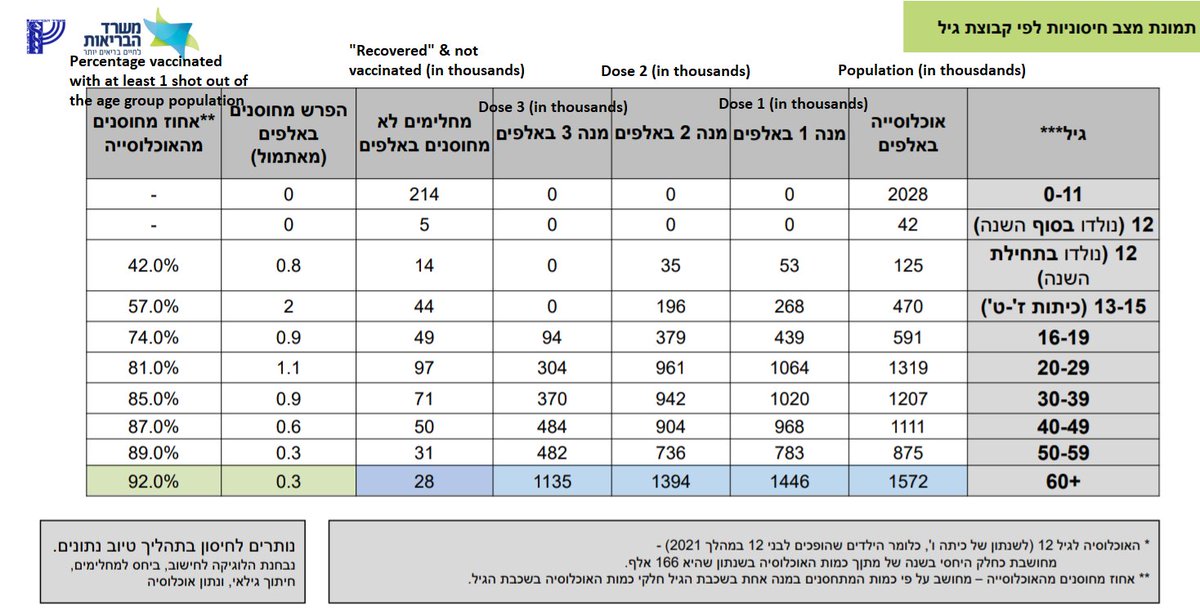
Lancet paper based on >3.4m USA patients found Pfizer vaccine effectiveness (VE) vs. infection decreased from 88% 1m after vaccination to 47% after 5m, but that VE vs. hospitalization remained strong at 93% through 6m.
This 🧵 will summarize key results.
thelancet.com/action/showPdf…
This 🧵 will summarize key results.
thelancet.com/action/showPdf…
This paper followed >3.4m patients >12yr old in the Kaiser Permanente Southern California (KPSC) system between 12/20 and 7/21 using a retrospective cohort design.
All patients needed to have >1yr of previous data to establish comorbidities.
All patients needed to have >1yr of previous data to establish comorbidities.
Their primary analysis computed relative risk of PCR+ infection, comparing unvaccinated with fully vaccinated individuals for each calendar day.
They adjusted for age, sex, race, previous SARS-CoV-2 infection, SES, previous health-care utilization, & various co-morbidities.
They adjusted for age, sex, race, previous SARS-CoV-2 infection, SES, previous health-care utilization, & various co-morbidities.
Their results validate what has been seen in Israel, UK and elsewhere: that Pfizer VE vs. infection wanes over time, down near 50% after 5m.
It does not go to zero, so there is still protection vs. infection, it is just not as strong as it was closer to time of vaccination.
It does not go to zero, so there is still protection vs. infection, it is just not as strong as it was closer to time of vaccination.

They sequenced the positive samples to evaluate the variants. We can see the shift in variants in this region, dominated by Epsilon in the winter, Alpha in the spring, and Delta in the summer. 

There is some concern of confounding with variant since Delta emerged more recently the longest after vaccination.
But they looked at waning VE separately by variant, & found that the waning was not an artifact of Delta, & waning effect is seen across all variants.
But they looked at waning VE separately by variant, & found that the waning was not an artifact of Delta, & waning effect is seen across all variants.

Looking at VE vs. hospitalization (with PCR+ test 14 days before to 3 days after admission), we see VE of 93% that does not show evidence of any waning over time. 

Taken together, this paper validates other data showing:
(1) VE vs infection wanes down to ~50% after 6m
(2) VE vs hospitalization remains >90% after 6m.
Pfizer was involved in this study, so I encourage critical assessment, but conclusions are strongly supported by the data.
(1) VE vs infection wanes down to ~50% after 6m
(2) VE vs hospitalization remains >90% after 6m.
Pfizer was involved in this study, so I encourage critical assessment, but conclusions are strongly supported by the data.
Here is a blog post that goes into a few more details:
covid-datascience.com/post/new-usa-s…
covid-datascience.com/post/new-usa-s…
• • •
Missing some Tweet in this thread? You can try to
force a refresh









